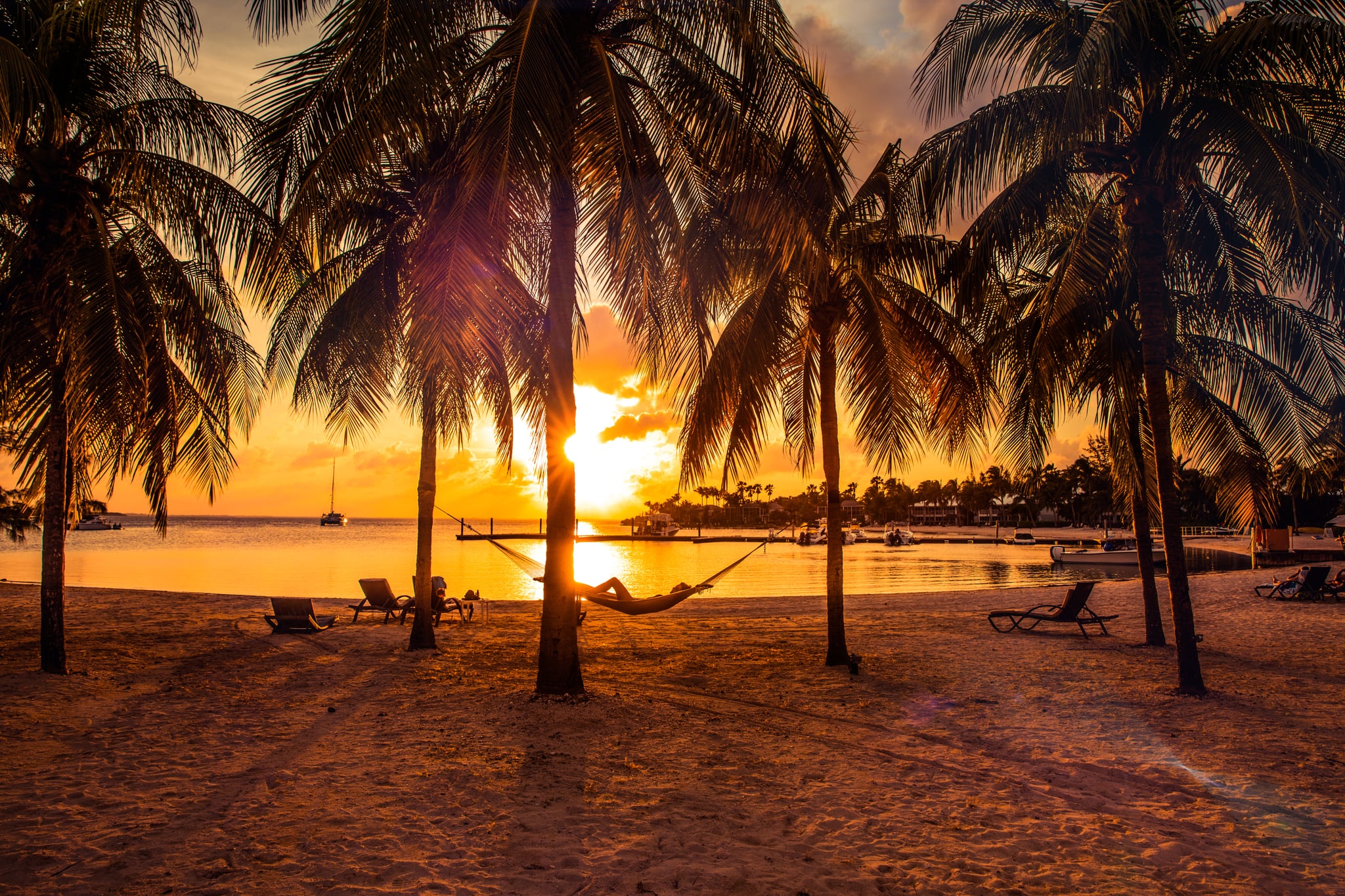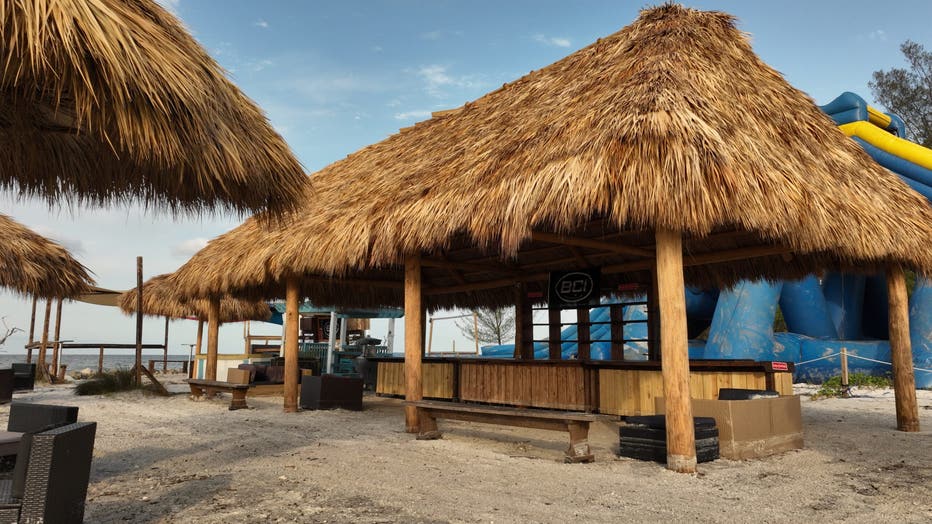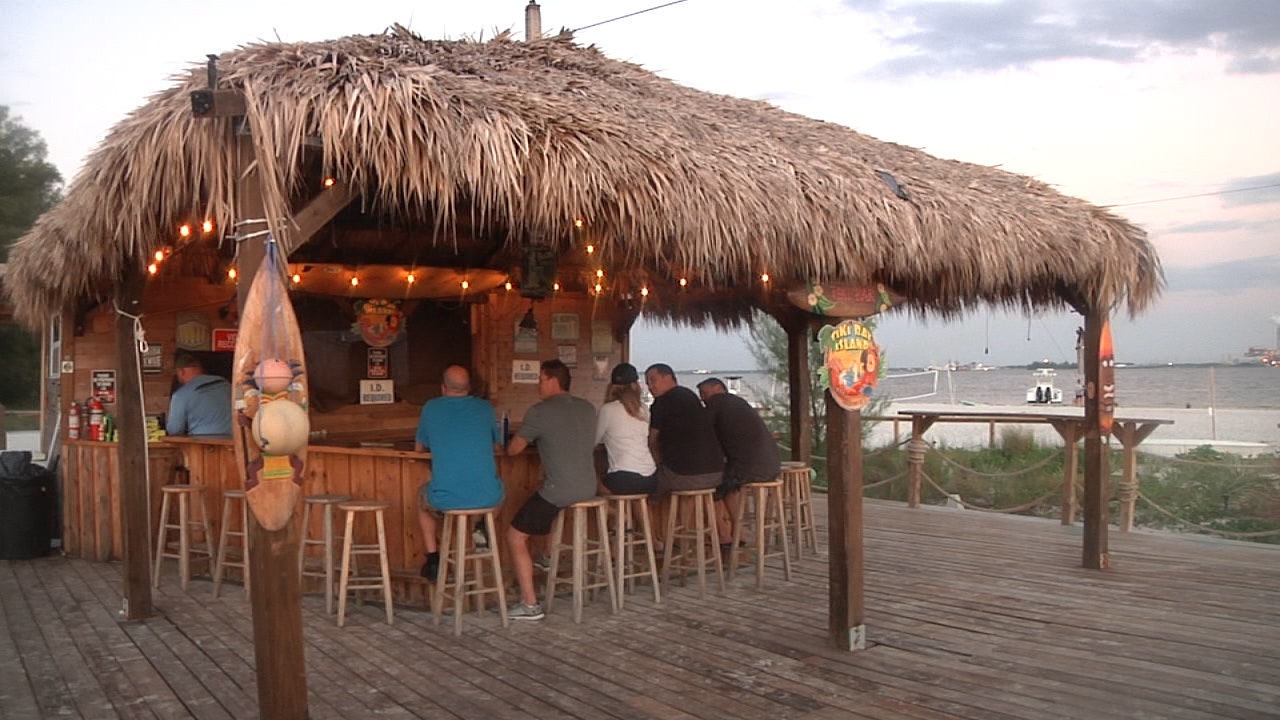Are you dreaming of owning your very own island getaway? Look no further than Beer Can Island, also known as Pine Key, nestled in the picturesque Tampa Bay, Florida. This 9-acre deserted paradise has a fascinating history and offers a unique opportunity for prospective buyers. Let's delve into the details and uncover what makes this island a hot topic of discussion.
The Origin Story of Beer Can Island
Beer Can Island has been a privately owned gem since the 1940s, captivating the imaginations of those seeking adventure and seclusion. Its allure lies in its pristine beaches, lush vegetation, and breathtaking views of the bay. Over the years, it has transformed, evolving from a hidden gem to a renowned party destination.
Related: Experts Dismiss Worries about South Florida's Commercial Real Estate
The Party Haven Transformation
When Cole Weaver, James Wester, Russell Loomis, and John Gadd purchased Beer Can Island in 2017, it was barely more than an uninhabited spit of land surrounded by the waters of Tampa Bay. However, the four owners envisioned the island's potential to become a one-of-a-kind party destination. With an initial investment of around $64,000, they set out to transform the deserted island into a tropical haven for fun and excitement.
Over the following years, they poured considerable resources into developing the necessary infrastructure and amenities. A full-sized tiki bar was constructed to serve drinks to revelers.

A volleyball court and massive inflatable waterslide were added to offer activities for daytime entertainment. Extensive renovations across the island upgraded its facilities to safely host large crowds. Event spaces were created to hold concerts, festivals, and weddings looking for a unique waterfront venue.
Through their efforts and vision, Beer Can Island was reborn. Now equipped with the facilities one would find at a beachfront resort, it soon developed a reputation as a hotspot for partying in Tampa Bay. Memberships were sold granting access to the island's exciting offerings.
At its peak, it saw many tourists and local residents enjoying the one-of-a-kind atmosphere and party amenities that the owners had cleverly created. For a few years, Beer Can Island lived up to its name as an adult playground and haven for fun before regulatory issues led to its closure.
Challenges and Setbacks
While Beer Can Island gained fame as a hot spot for fun in the sun, its success was not without difficulties. One of the biggest obstacles was Tampa Bay's zoning regulations, as the island lacked proper permits to operate the way its owners envisioned.
Its designation as an unzoned property left questions about what activities could legally take place there. Nearby residents also brought concerns to local officials about noise disturbances from large crowds and parties. Safety became a topic of debate, particularly about emergency response if a major incident occurred.
These issues led to scrutiny from Hillsborough County, with one commissioner dubbing the island an "eyesore." Regulators pushed for the land to be reclassified as a nature preserve rather than an entertainment venue.
To address the zoning ambiguity and complaints, the owners spent over $1 million in legal fees trying to negotiate with the county. However, an agreement on permitted use seemed elusive as debates dragged on. The prolonged uncertainty took a financial toll.
Facing mounting regulatory pressure, the owners made the difficult decision to cease operations in 2023 until zoning was clarified. Their vision of the island as an adult playground gradually became untenable.
While enormously popular with visitors, Beer Can Island struggled to find favor with officials due to its unpermitted status. This impasse stalled further development and left its future in limbo.
The Listing and Potential Sale
After years of regulatory challenges stalled the island's operations and mounting costs took their toll, the owners decided to sell Beer Can Island. Hoping to conclude their chapter, the 9-acre property was placed on the real estate market in February 2024 with an ambitious asking price of $14.2 million. To attract serious buyers, the owners marketed the undeveloped land as a rare opportunity to privately own an island in Tampa Bay with vast development potential.
A planned auction for the property was announced to let bidding play out. However, shortly after being listed, the auction was suddenly canceled as multiple cash purchase offers began coming in above expectations.

Buyers were recognizing the island's value despite its zoning issues. While interest was high, as of April 2024, a sale was yet to be finalized as negotiations continued over price and terms.
Depending on if a deal transpires, the new owner could pursue many possibilities. One option entails working with county authorities again to get proper zoning and establish permitted use, whether residential or commercial.
Alternatively, the secluded island could function as a private estate or nature preserve if development proves unfeasible. For now, the future of this storied piece of Florida real estate remains unclear as its new chapter awaits the closing of a sale.
Related: Experts Dismiss Worries About South Florida's Commercial Real Estate
Investment and Financial Insights
Transforming the deserted island into a hot spot took significant capital. Throughout their ownership, the individuals behind Beer Can Island invested heavily in overhauling infrastructure and amenities.
It's estimated that $5 million was poured into the construction of facilities like the tiki bar, waterslide, and other upgrades to handle large crowds safely. Outfitting the property to its full potential required extensive renovations and rebuilding.

Owning such a unique asset also carried sizable legal costs. Attempting to navigate the complex zoning process and address complaints proved immensely time-consuming. It's reported the expenditure on related attorney fees amounted to $1 million over the years fighting these bureaucratic battles.
Yet despite the pandemic and ultimately ceasing operations, the island managed to make some money. In 2023 alone while closed, the island still generated $750,000 in gross revenue, likely from previously sold memberships. Additionally, the annual tax assessment was fairly modest at just $1,800, illustrating the potential tax benefits of such a purchase.
While profiting proved difficult given the challenges, the financials still provide important context into owning and operating such distinctive waterfront property. The figures offer buyers a sense of past performance and hurdles to weigh heavily in any purchase decision.
The Future of Beer Can Island
With the island now back on the market, the future of Beer Can Island is uncertain but full of potential opportunities. New owners may choose to reimagine its use.
One option is petitioning local authorities to change the zoning to an approved residential designation. This could unlock the island's potential for luxurious private homes, estates, or high-end resort development. Living on a private island in Tampa Bay would be a rare and exceptional prospect.
However, considerable challenges still exist that could hamper large-scale development. The closest neighbor is MacDill Air Force Base, potentially limiting construction heights or noise levels.

After years of debate, zoning regulations also remain ambiguous, leaving the door open for further opposition from regulators or neighbors if significant changes are made. Environmental concerns and rules may constrain new infrastructure additions as well. Emergency access and evacuation in the event of hurricanes also pose planning complexities.
Rather than housing, an alternative path could see the land preserved as an undeveloped nature sanctuary under private ownership. If zoning and legal issues ultimately block recreational or residential redevelopment, this may become the preferred option. For now, the island's fate remains uncertain as potential remains untapped but substantial hurdles still stand in the way of realizing grand visions for its second act.
Conclusion
As the owners prepare to turn the page on this chapter, Beer Can Island stands as a rare gem awaiting its next custodian. Whether you envision it as a vibrant party destination or a tranquil private retreat, the allure of owning your island in Tampa Bay is undeniable.
So, if you're ready to embark on a new adventure and make your mark on this tropical paradise, seize the opportunity to own Beer Can Island—a slice of paradise waiting to be discovered. Cheers to new beginnings and endless possibilities!





